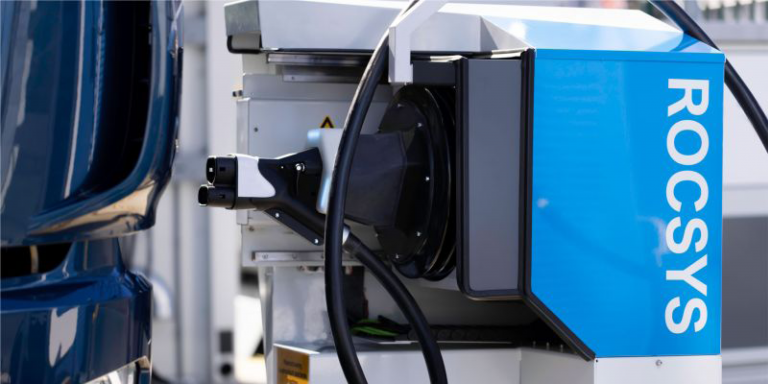
Founded in 2019 in the Netherlands in Ryswick in the suburbs of The Hague, with a U.S. base since last year in the United States in Portland, Oregon, Rocsys develops solutions for autonomous charging cable connection. The start-up has just won a major contract in Oakland, California.
Rocsys was founded three years ago in the Netherlands by a team of experienced entrepreneurs with very complementary skills and assets: Crijn Bouman (co-founder of Epyon, a fast charging station and vice president at ABB), Joost van der Weijde (PhD in soft robotics and co-founder of SpringScan) and Kanter van Deurzen (co-founder of Fizyr, a computer vision technology company).
In 2021, Rocsys raised  50 million in funding from the California Air Resources Board (CARB).
50 million in funding from the California Air Resources Board (CARB).
Translated from Rocsys, start-up néerlandaise, propose une solution pour le branchement autonome des câbles aux bornes de recharge









